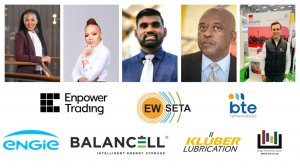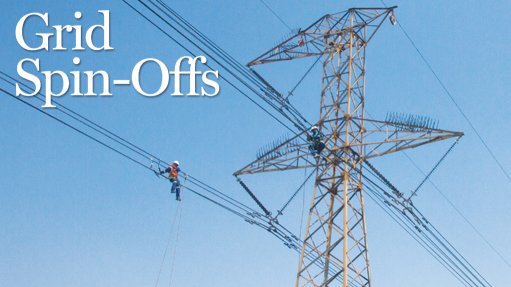Renewable energy skills shortage poses major challenge to sector’s growth


What is the role of renewable energy in assisting South Africa to overcome loadshedding
Renewable energy technologies
The accurate determination of skills demand is becoming increasingly important as South Africa rolls out more renewable energy projects and transitions its energy system.
Speaking during a webinar hosted by Creamer Media on June 22, Energy and Water Sector Education and Training Authority (EWSETA) CEO Mpho Mookapele said the entity usually received skewed information on what skills the country required as the renewable energy sector matured.
She added that this led to misallocated government funding and inadequate development of the correct skills.
EWSETA has found that energy companies themselves often miss the key, but overlooked, skills required in the industry, such as marketing.
Mookapele deemed it vital that different stakeholders in the value chain determine what South Africa required from a renewable energy skills perspective, and collate work skills plans.
EWSETA, for one, has been working with industry associations the South African Wind Energy Association (SAWEA) and the South African Photovoltaic Industry Association (SAPVIA) to help determine the correct skills demand profile in the renewable energy sector.
Government entities such as the Department of Mineral Resources and Energy (DMRE) and the Presidential Climate Commission have also been working to determine skills development requirements.
EWSETA has devised an energy skills roadmap, which has consolidated a lot of research that has been conducted in South Africa. Additionally, EWSETA is also working with employers to either upskill their employees or drive access to opportunities for unemployed people.
Mookapela believes it is not only technical colleges and universities that will skill people for the energy transition – so will industry.
Unless South Africa got its skills development on par with the expansion of the renewable energy sector, the country would become a consumer of what other countries were developing, as had been the case with many African countries, she pointed out.
EWSETA has partnered with companies in China to transfer renewables manufacturing knowledge to South African technical colleges.
“The reality is that it will be embarrassing [if] all our technologies are imported despite having these immense natural resources for [generating] renewable energy,” Mookapele stated, adding that there was a lack of strategic, integrated planning around the opportunities in the renewable energy sector.
“We have the opportunity right now to redress past inequalities. The amount of interest in South Africa because of its renewable energy commodities should not be taken lightly. It is an opportunity for South Africa to lead in renewable energy manufacturing and build something with meaningful impact, not just host resources.”
Specialist tax consultancy EY Cova partner Tumelo Chipfupa agreed with Mookapele’s sentiment that, to get the renewable energy sector working properly, the country needed to “jack up" its skills to the required levels.
He also believes collaboration will be key to resolving the skills shortage challenge.
SAWEA senior technical adviser Santosh Sookgrim also believes the single-biggest challenge across the wind and solar photovoltaic (PV) sectors to be the shortage of skills, followed closely by grid capacity constraints.
He said the appetite for wind, solar and hybrid solutions was accelerating rapidly, not just in the traditionally resource-rich regions of the country.
“What we have seen is that there is no clear pathway to developing the renewable energy industry. Many other industries have clear outlines of what needs to be studied, what qualifications and accreditations are needed, but this is lacking in the renewables sector and we are working towards clarifying that,” Sookgrim said.
He emphasised that the skills step-change related not only to technicians, but also to marketing, human resource, accounting, law and policy experts.
Besides the lack of skills in the renewable energy industry, Sookgrim noted that basic knowledge about renewable energy and its benefits was also lacking, particularly in rural parts of the country – which ironically can benefit most from renewable energy.
He deemed it necessary that awareness of the value of renewable energy be accelerated along with skills development.
SAPVIA CEO Dr Rethabile Melamu said the skills shortage in the renewable energy sector was particularly prevalent in the solar industry, as a spike in PV uptake had laid bare the “huge shortage of capable people” to install these systems, especially in the residential market.
To this end, the association has developed a PV Greencard programme, which is aimed at upskilling electricians, who already have the basic skills required for energy installations, to be able to operate in both the alternate current and direct current side of PV installations.
In turn, she said it was important that young people with some of these core electrical qualifications got access to opportunities and were enabled to operate.
Moreover, Melamu said the DMRE, industry players and the Department of Trade, Industry and Competition were developing a South African Renewable Energy Master Plan, the draft of which would likely be out for public comment in July. She said this was a crucial opportunity for key players to make inputs on skills development in the sector.
Electricity trading business Enpower Trading CEO James Beatty stressed that, if South Africa could develop more of its renewable energy skills capacity, it would be easier to create templates for wheeling agreements and harmonised tariff structures, which were both crucial to energy trading.
He explained that, if more municipalities were to implement use of system agreements with the private sector, then skills and education for understanding energy trading were vital.
Mookapele concluded that unless the energy transition was considered from a socioeconomic development perspective, which included skilling and upskilling people, the country would miss out on a significant opportunity to solve its challenges of poverty, unemployment and inequality.
Article Enquiry
Email Article
Save Article
Feedback
To advertise email advertising@creamermedia.co.za or click here
Press Office
Announcements
What's On
Subscribe to improve your user experience...
Option 1 (equivalent of R125 a month):
Receive a weekly copy of Creamer Media's Engineering News & Mining Weekly magazine
(print copy for those in South Africa and e-magazine for those outside of South Africa)
Receive daily email newsletters
Access to full search results
Access archive of magazine back copies
Access to Projects in Progress
Access to ONE Research Report of your choice in PDF format
Option 2 (equivalent of R375 a month):
All benefits from Option 1
PLUS
Access to Creamer Media's Research Channel Africa for ALL Research Reports, in PDF format, on various industrial and mining sectors
including Electricity; Water; Energy Transition; Hydrogen; Roads, Rail and Ports; Coal; Gold; Platinum; Battery Metals; etc.
Already a subscriber?
Forgotten your password?
Receive weekly copy of Creamer Media's Engineering News & Mining Weekly magazine (print copy for those in South Africa and e-magazine for those outside of South Africa)
➕
Recieve daily email newsletters
➕
Access to full search results
➕
Access archive of magazine back copies
➕
Access to Projects in Progress
➕
Access to ONE Research Report of your choice in PDF format
RESEARCH CHANNEL AFRICA
R4500 (equivalent of R375 a month)
SUBSCRIBEAll benefits from Option 1
➕
Access to Creamer Media's Research Channel Africa for ALL Research Reports on various industrial and mining sectors, in PDF format, including on:
Electricity
➕
Water
➕
Energy Transition
➕
Hydrogen
➕
Roads, Rail and Ports
➕
Coal
➕
Gold
➕
Platinum
➕
Battery Metals
➕
etc.
Receive all benefits from Option 1 or Option 2 delivered to numerous people at your company
➕
Multiple User names and Passwords for simultaneous log-ins
➕
Intranet integration access to all in your organisation




















